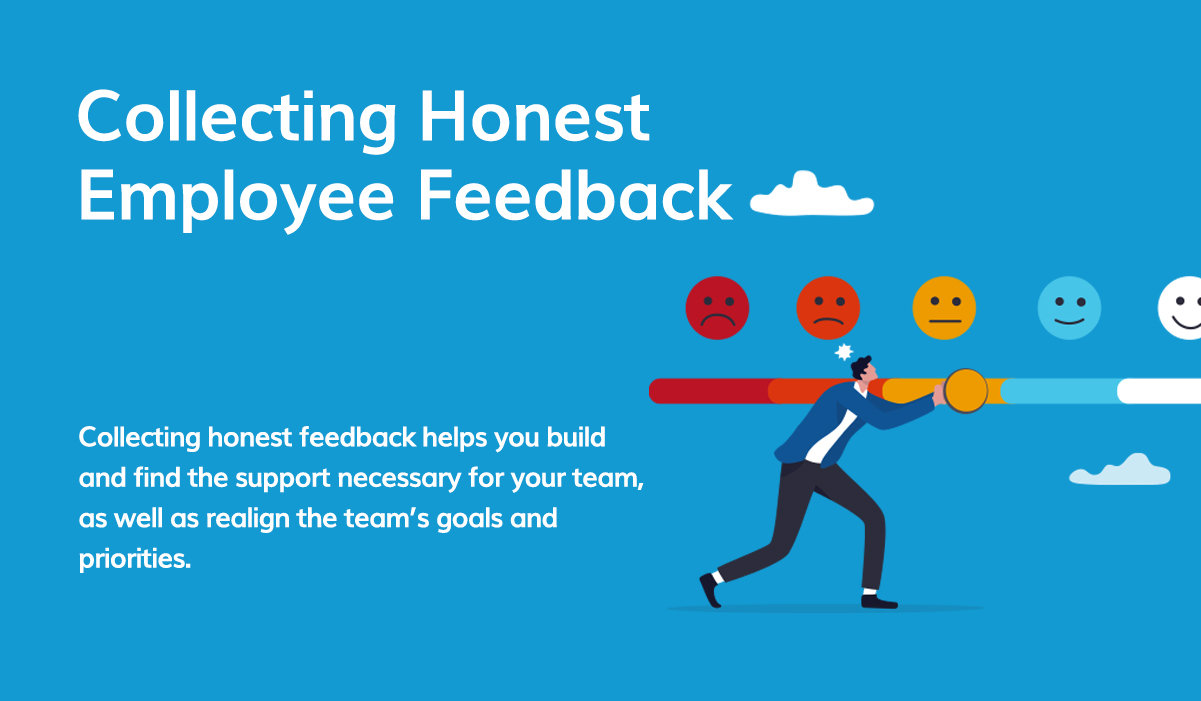Making sure your team is healthy is part of your growth as a manager, and the mark of a true leader. Whether it’s positive, negative, or constructive feedback it is important to know what’s up with your team and to keep a pulse on what’s helping or blocking your team.
Collecting honest feedback helps you build and find the support necessary for your team, as well as realign the team’s goals and priorities. Adaptability is also a sign of good leader. Now this is where we get to the tricky part: How does one get honest feedback?

Foster a feedback-positive culture
Successful organisations know how important it is to foster a safe environment for its employees where people can express their opinions and concerns freely. An inclusive culture is one that is open to receiving feedback, acting upon that feedback and, therefore, showing that employee feedback is valued. One way to do this is to ensure that there is mutual trust. Employees may have some of the best ideas on more efficient processes and maximising effectiveness, but if they do not feel safe and free, they are much less likely to share for fear of retribution.
One way to build this trust is to simply let them know their opinions matter. Let them know that when they share their ideas as well as concerns, they are contributing to the team’s collective success and consequentially their own. It is also worth sharing some of your concerns with the team and asking them for their opinions. This helps nurture a feedback-positive culture.
Act on the feedback you receive and give credit where credit is due. Brainstorm and develop new ideas with your team to build a positive sense of ownership. This will help engage and therefore enable them to open up and share their solutions with the team. Always remember to thank your team for their input and give employees the recognition they deserve. How you act on feedback sets the tone. Eventually you will find that you have a positive, continuous feedback loop that pushes the team forward and improves it.
Third-party apps and services
On a larger scale, for bigger organisations and high-level structures, you may want to engage a third-party service to collect feedback. These apps or services will ensure anonymity and gather honest feedback. Some examples include Survey Monkey, OfficeVibe or Tinypulse. A suggestion box is another way to ensure anonymity, especially for larger companies. Just make sure it is opened periodically.
Make time for one-on-one sessions
Connecting regularly and individually with your employees is crucial to establishing a healthy feedback loop and nurture a productive work environment. Sometimes it’s as simple as asking ‘What can I do to help you this week?’. When people are comfortable sharing their concerns with you, it will avoid nasty surprises down the line and help you equip and prepare yourself better. Holding these meetings regularly (ideally on a pre-set schedule rather than ad hoc) as well as following through on feedback will help build a foundation of trust.
Give the employees control
Ask employees to provide you with feedback through surveys employees create, perhaps with help from HR. Google Forms is a free tool one can use for such surveys and it can show you real time responses. They will own the process and it will yield some great results and ideas. Alongside this, an open-door environment is helpful. Let employees feel like they can come to you with their problems, as well as solutions. When leaders are approachable, honest and genuine feedback will come.
Like with like
If you’re not honest and transparent with your employees, they are unlikely to feel like they can be forthright with you. Give them feedback – both on what they’re doing well and what they can improve on. Create this psychological safety by taking the first step yourself.
If you follow these tips, it may take some time to see results, but you’re on the right track – and that’s the best that one can hope for.

